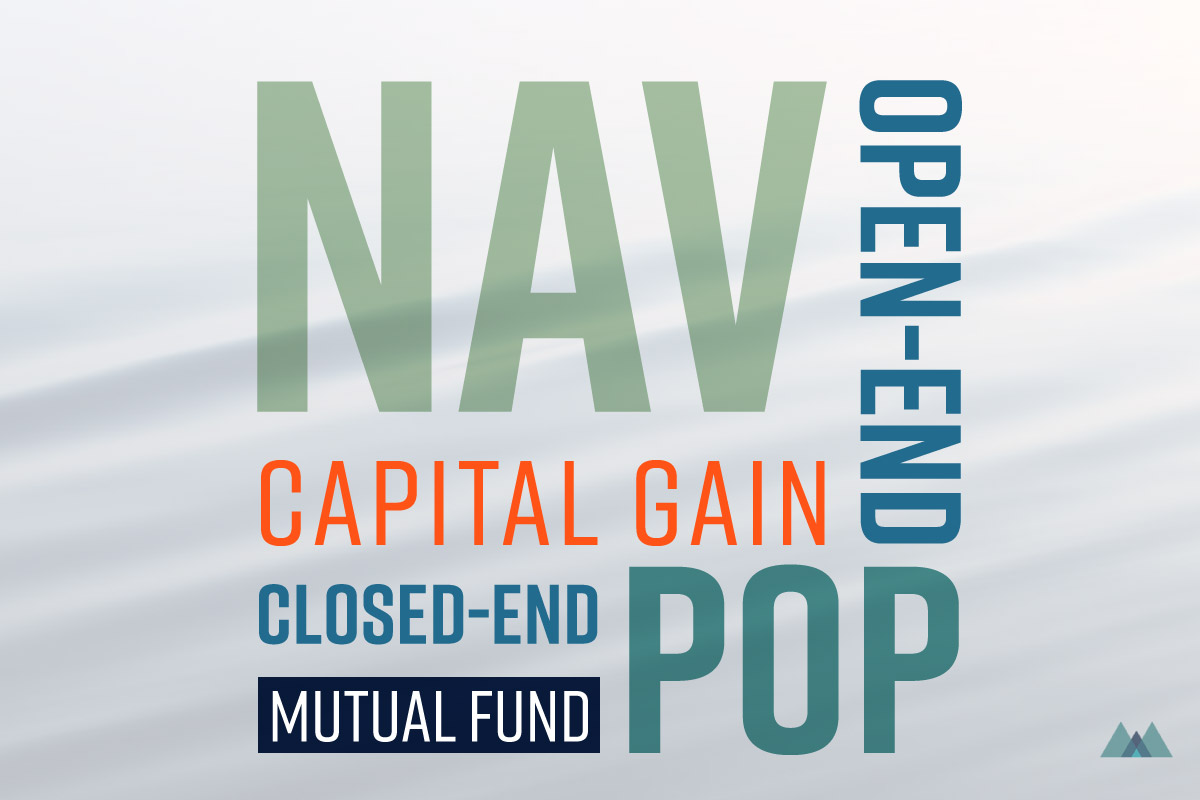
1.Net Asset Value (NAV) simply means the daily price - a mutual fund's price per share, calculated at the end of the day.
NAV = (sum of market value of all the fund’s securities - fund’s liabilities) / the number of outstanding shares
2.Public Offering Price (POP) is the real daily price that is sold to the public after deducting sales charge.
For a no-load fund: the POP = NAV
For a load fund: the POP = NAV + load (the sales charge)
3.Capital Gain (Capital Appreciation) is an increase in the value of an investment. It is the difference between what you paid for shares purchased and when you sell them. When the sale price is lower than the purchase price, it is called a capital loss.
Capital gain (Capital Appreciation) = Sale Price - Purchase Price (Basis)
Sarah has decided to invest in mutual funds since she does not have time to manage the investments herself. After quick research online, Sarah found two similar mutual funds that she likes. She figured out ? that the Net Asset Value (NAV) means the price, and both funds are $10.
However, Sarah notices that the Public Offering Price (POP), which is the price that she actually has to pay, is different for the two funds. While Fund A has a POP of $10, Fund B has a POP of $11. Sarah soon finds out that Fund B has an extra load, or sales charge, on top of the NAV while Fund A does not. Sarah invests in Fund A to avoid the sales charge and maximize her investments.
Sarah is hoping Fund A will grow its value so as to bring her Capital Gain when she needs to sell it.
4.Open-end Funds means that fund companies can keep increasing the number of shares. There is no limit to the number of new shares an open-end funds can issue. Most mutual funds are open-end.
5.Closed-end Funds issue a fixed number of shares to the public in an initial public offering and behave more like stock than open-end funds. The price of a share in a closed-end fund is determined entirely by market demand, so shares can either trade below their net asset value ("at a discount") or above it ("at a premium"). Closed-ended funds are considered to be more suitable for experienced investors.

Time's up
